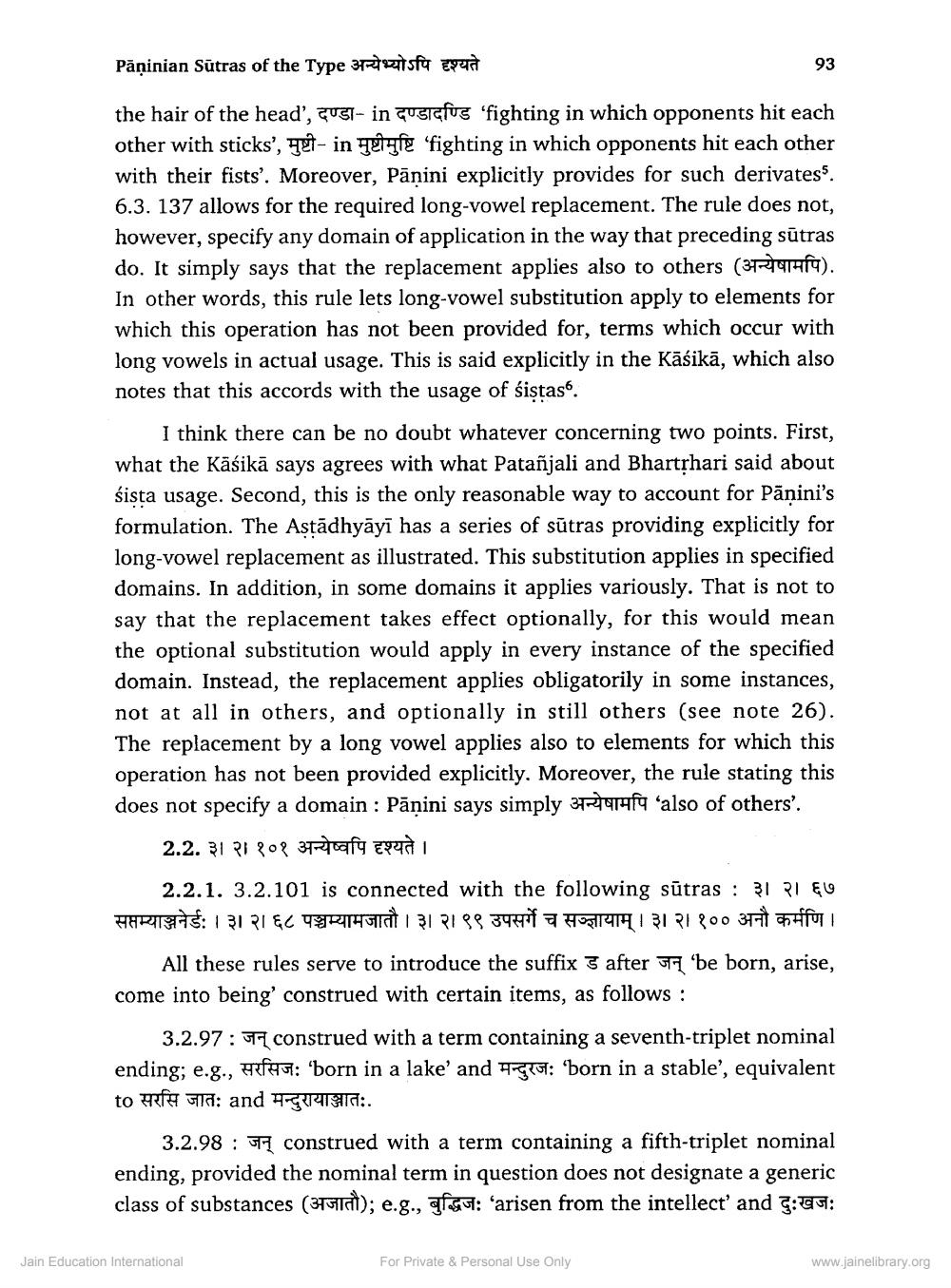________________
Paninian Sutras of the Type अन्येभ्योऽपि दृश्यते
93
the hair of the head', FUST- in Gusicfus 'fighting in which opponents hit each other with sticks', het in eufe 'fighting in which opponents hit each other with their fists'. Moreover, Pānini explicitly provides for such derivatess. 6.3. 137 allows for the required long-vowel replacement. The rule does not, however, specify any domain of application in the way that preceding sūtras do. It simply says that the replacement applies also to others (
R T ). In other words, this rule lets long-vowel substitution apply to elements for which this operation has not been provided for, terms which occur with long vowels in actual usage. This is said explicitly in the Kāśikā, which also notes that this accords with the usage of sistas.
I think there can be no doubt whatever concerning two points. First, what the Käśikā says agrees with what Patañjali and Bhartshari said about śista usage. Second, this is the only reasonable way to account for Pāṇini's formulation. The Astādhyāyī has a series of sūtras providing explicitly for long-vowel replacement as illustrated. This substitution applies in specified domains. In addition, in some domains it applies variously. That is not to say that the replacement takes effect optionally, for this would mean the optional substitution would apply in every instance of the specified domain. Instead, the replacement applies obligatorily in some instances, not at all in others, and optionally in still others (see note 26). The replacement by a long vowel applies also to elements for which this operation has not been provided explicitly. Moreover, the rule stating this does not specify a domain : Pāṇini says simply priarufa ‘also of others'.
2.2. 31 PI 80 37 afy zgud
2.2.1. 3.2.101 is connected with the following sūtras : 31 PIEL सप्तम्याञ्जनेर्डः । ३। २। ६८ पञ्चम्यामजातौ । ३। २।९९ उपसर्गे च सञ्ज्ञायाम् । ३।२। १०० अनौ कर्मणि ।
All these rules serve to introduce the suffix 3 after 77 'be born, arise, come into being construed with certain items, as follows:
3.2.97 : 7 construed with a term containing a seventh-triplet nominal ending; e.g., F F: 'born in a lake' and GT: 'born in a stable', equivalent to la: and GREA:.
3.2.98 : 57 construed with a term containing a fifth-triplet nominal ending, provided the nominal term in question does not designate a generic class of substances (अजातौ); e.g., बुद्धिज: 'arisen from the intellect' and दुःखजः
Jain Education International
For Private & Personal Use Only
www.jainelibrary.org




